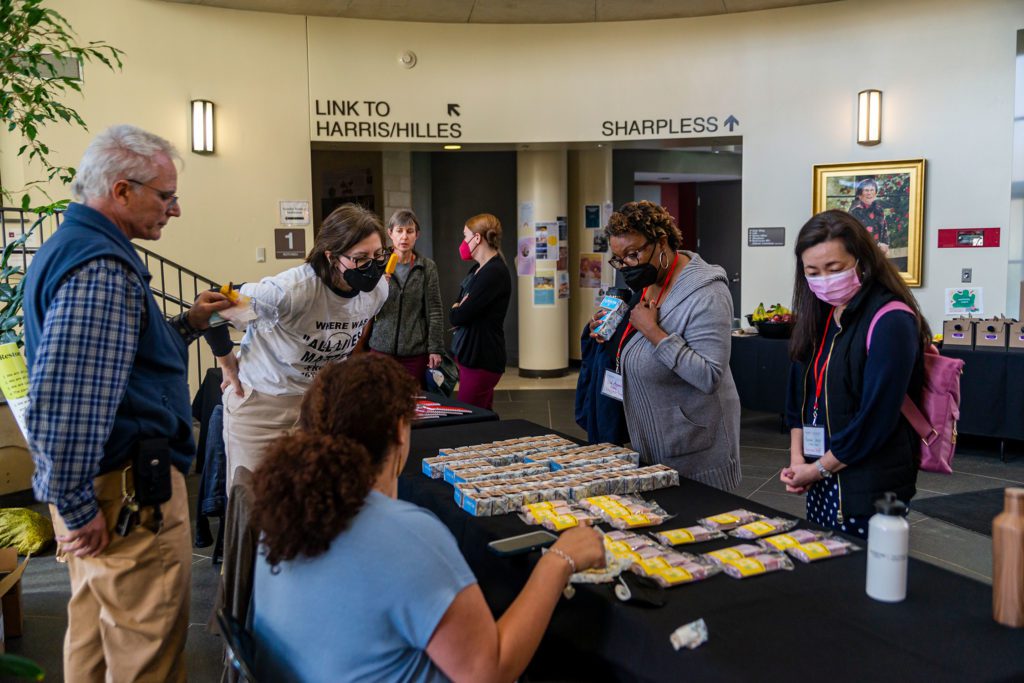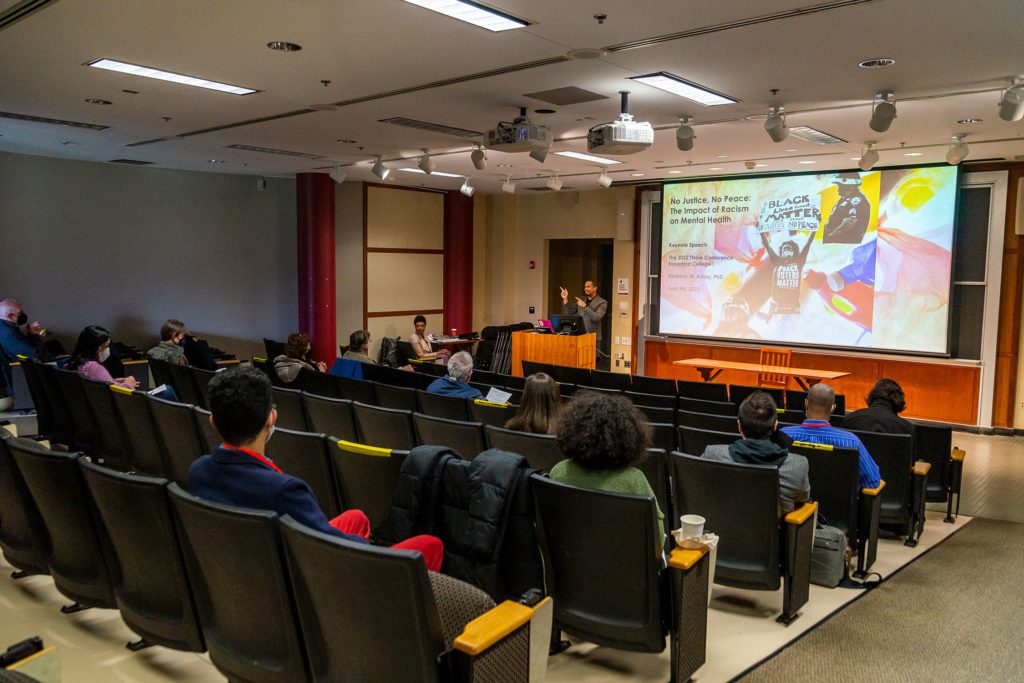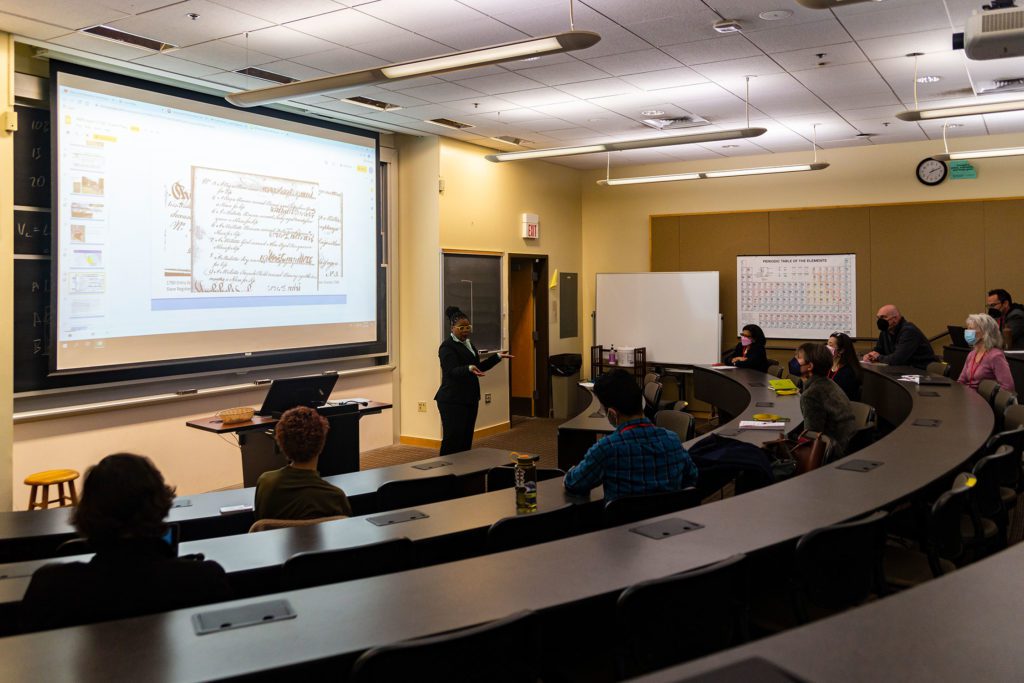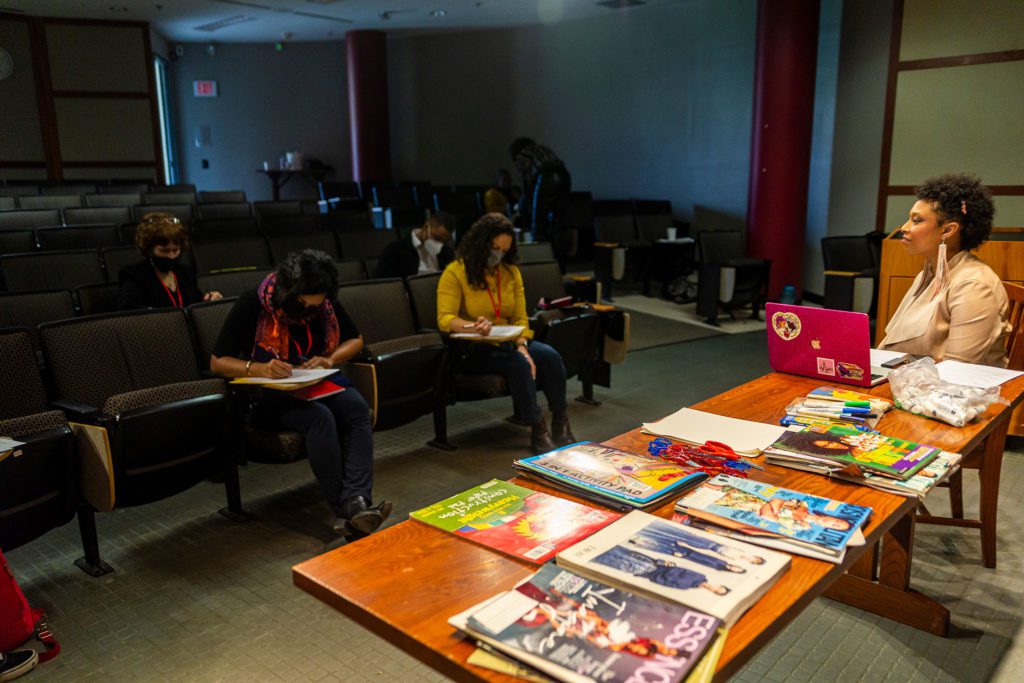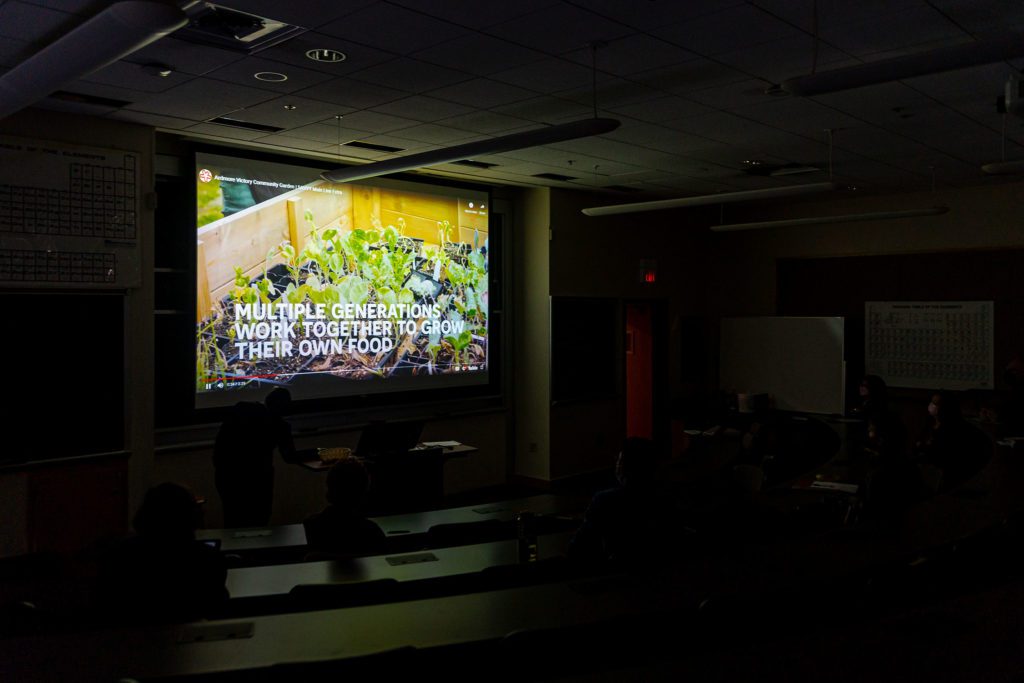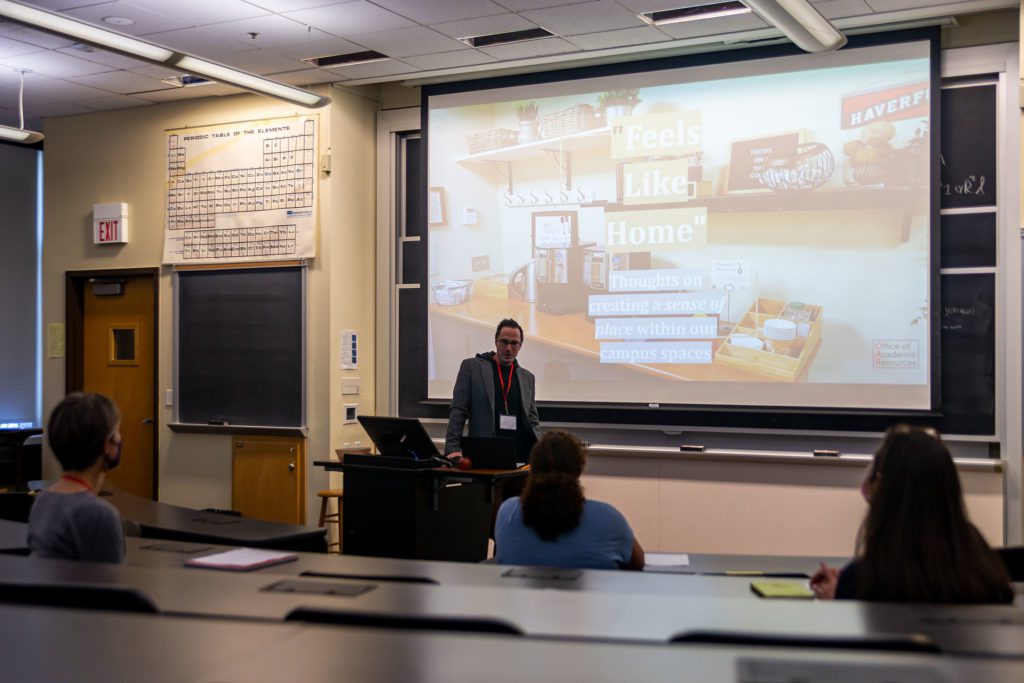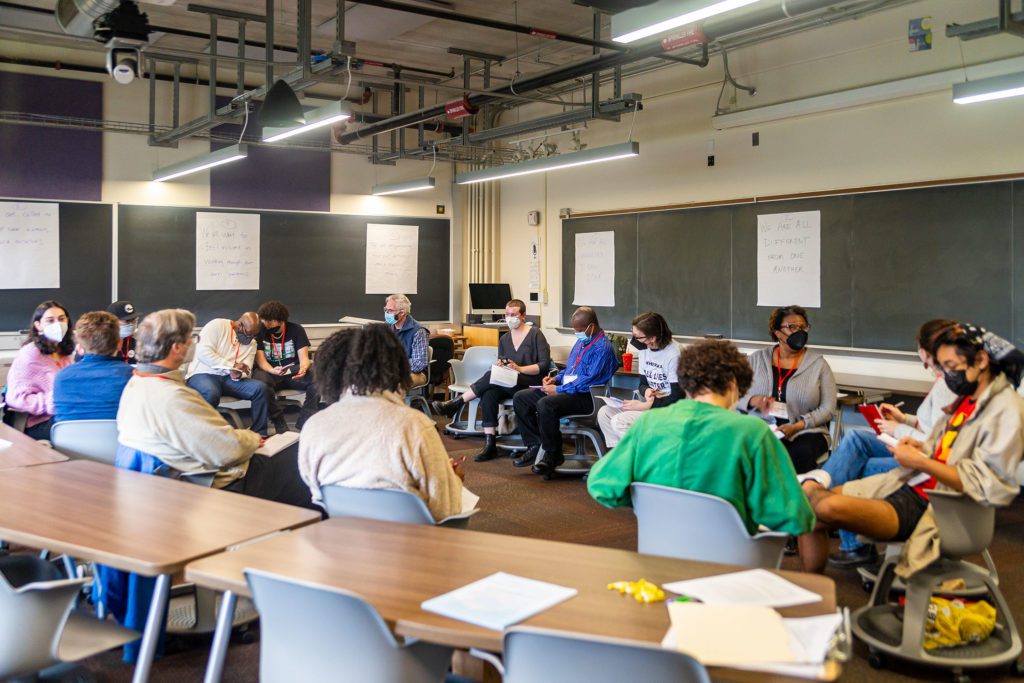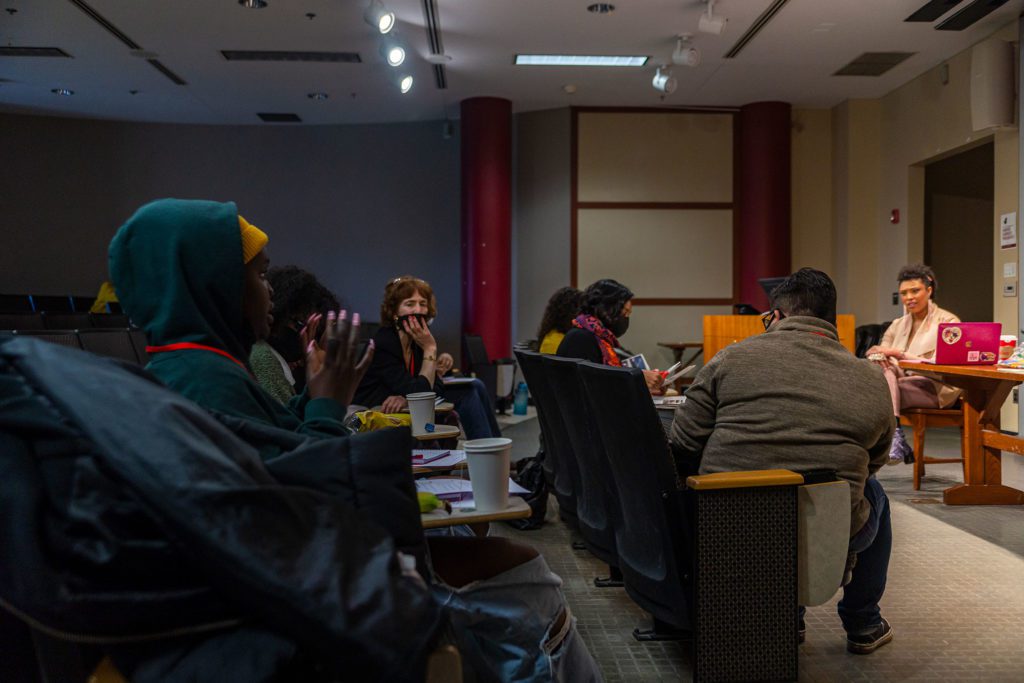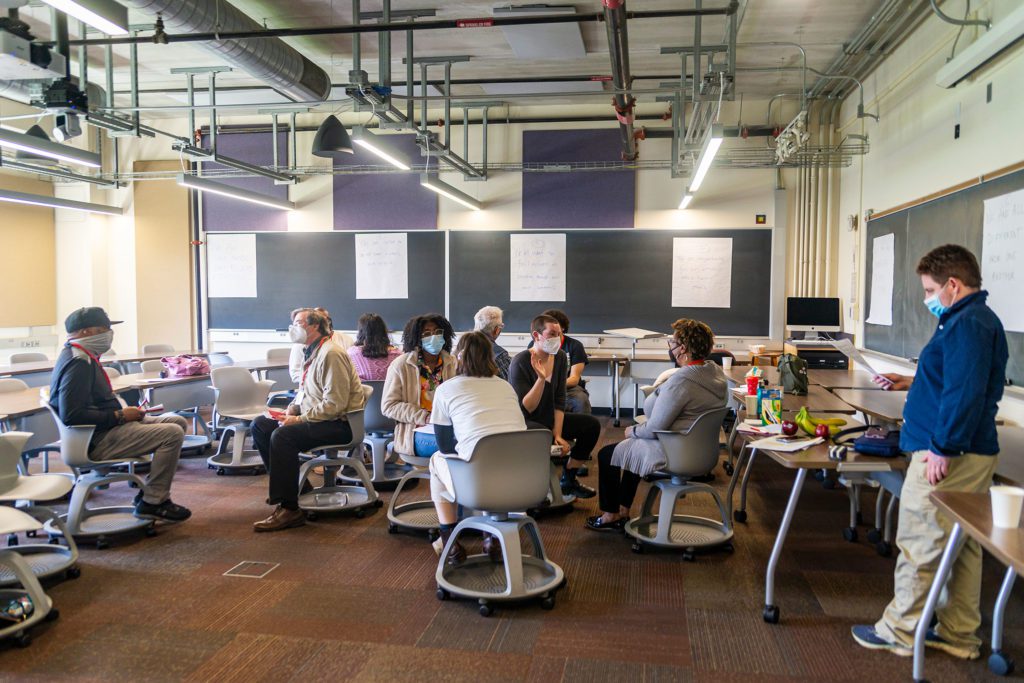On April 9, Haverford hosted its inaugural THRIVE (Truth, Healing, Resiliency, Inclusion, and Equity) Conference: From Harm to Healing. Taking place in the KINSC and bringing together more than 50 people, the event sought to facilitate conversations about how Haverford can make positive change on matters of antiracism, equity, inclusion, and accountability. THRIVE is a campus-wide initiative, started in February 2021 by former Interim Dean of the College Joyce Bylander, to invest long-term in sustainable change through constructive engagement. Its first conference hoped to build off of and further the progress made since the student strike of fall 2020, which saw students push for a substantive improvement in the College’s antiracism efforts.
“The goal of the conference was to bring together people from Haverford, the local Ardmore community, and beyond to address issues related to racial trauma and regeneration, helping us to better understand one another, and ourselves,” said Emily Johnson, director of the Marilou Allen Office of Service & Community Collaboration, who served as one of the event’s directors with support from the DEI team members. Such conversation is foundational to the THRIVE initiative overall.
The conference opened with a keynote address by Kimberly M. Ashby, a Black, Afro-Indigenous psychotherapist, artist, and activist. Her address, “No Justice, No Peace: The Impact of Racism on Mental Health” highlighted the role that racial trauma played in her life, and how activism has helped her heal from it, while she was a student at Boston College, and beyond.
Ashby credited a great deal of her success to the resilience passed down by her ancestors, who had been activists in their own rights. She invited each audience member to call out a name of an ancestor, relative, or figure in their life who had provided them with resilience, courage, or mentorship needed to get through a challenging time.
After Ashby’s keynote, there were three concurrent workshops with guest speakers. “Process, Create, & Protest: Crafting Coping Tools for Racial Trauma,” also presented by Ashby, explored dealing with racial trauma using specific tools, such as visual art. “Ardmore & Its Complicated History,” presented by Rev. Carolyn C. Cavaness, pastor of Bethel AME Church, covered the neighboring town’s history of racial and class division, and how education structures, such as local high schools and Haverford College, contributed to it. For example, Cavaness recounted interviews with Black alumni of Lower Merion High School, who said they were enrolled in remedial classes that they did not need, and were not offered the same classes as their white classmates. “Race & Restorative Justice (Part 1),” presented by Associate Director of the Center for Peace and Global Citizenship (CPGC) Janice Lion and fellow members of the external restorative justice group Let’s Circle Up, introduced the topic of restorative justice and its use by formerly incarcerated people to reflect on racial trauma. Haverford’s CPGC has provided the primary support for the group since its founding in 2007.
“Attendees hopefully were impacted by the speakers and the sessions they attended, learning about methods to deal with trauma, the history of Ardmore and its relationship with Haverford College, restorative justice, and more,” Johnson said of the conference’s results. “By coming together with students, faculty, staff, and neighbors outside of the Haverford community, we were able to connect and learn in ways we don’t always get to in the classroom and on campus.”
A second workshop session offered three more discussion groups, all led by campus community members. Aissatou Seck ‘24 led “Pushing for Progress: Development After the Strike,” discussing progress that the College has made since the strike while identifying areas for further improvement. Participants, including students, staff, and faculty, were encouraged to share their personal experiences from the strike, both as a means of self-reflection and as a way to inform new students and staff who were not on campus in fall 2020. Brian Cuzzolina, director of the Office of Academic Resources (OAR), led “Feels Like Home: Thoughts on Creating a Sense of Place Within Our Campus Spaces,” exploring the importance and challenges of providing inclusive community spaces for students on campus. Janice Lion continued her session about restorative justice, this time with a focus on how it can be used to turn systemic harm into healing.
Johnson thought the conference was a success. “Hopefully, through conversation and participation in these workshops and talks,” she said, “people left with a greater understanding of the issues facing our community, at Haverford and beyond, and gained tools for moving forward, healing, and making progress.”

